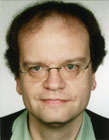Social Transformation in Modern Japan: State, Family and Individual
January 1994 - December 1969
The starting point of this research project was the question: what kind of structures has the process of modernization in Japan led to? In contrast to the preceding DIJ project on "The Transformation of Values in Post-War Japan" which focused on basic mind-sets, this project highlighted attitudes and resultant behaviour. The changes we can observe in Japan are similar to those in Europe in the late 1960s, for example the questioning of the universality of marriage and the employment of women. However, this does not mean that Japanese society exactly repeated the development in the West. Applying different methods, the project assessed subjects such as the Japanese family, gender roles of Japanese adolescents, political reforms, care for the elderly, and the image of the family in popular Japanese TV series. The lectures given on the latter subject at the symposium "The Image of the Family in the Media" were published in 1998.
Within the framework of the project, a new multidisciplinary focal point was set up every year. In 1997, the main topic was "Care for the Elderly in Its Familial and Regional Dimensions". It was the year when Japan drew level with Germany in the proportion of people over 65 (15.5%) and introduced insurance to cover care for the aged, just as Germany had done a few years before. Against this background, similarities and differences in the demographic situation, and in the way the problem of aging populations is treated by social policy in both countries were examined. Ralph Lützeler and Christian Oberländer were responsible for planning and organizing a conference on this topic.
In 1998, political reforms in Japan were the central subject, especially the question of how and to what extent a change in the general conditions as defined by the political system can advance social transformation. Ralph Lützeler and Verena Blechinger examined the reform of the election system and its effect on the political decision-making process and on voting behaviour. An international conference in July 1998 with the title "Political Reform in Japan - Entering a New Era of Japanese Democracy?" analysed, from different points of view, the reform measures taken until then and the reactions of the politicians.
In 1999 and 2000, the project focused on men and women's roles. The historical development of the father's role from the perspective of gender studies, the formation of gender identity during adolescence from the point of view of education studies, and the current issue of sexual harassment seen from the angle of political science were investigated. The DIJ members responsible were Verena Blechinger, Harald Fuess, and Susanne Kreitz-Sandberg. In April 1999, a symposium was held on "Andere Welten? Jugend in Japan und Deutschland" ("Other Worlds? Youth in Japan and Germany").
Team
 Verena Blechinger (until January 2002)
Verena Blechinger (until January 2002) Ralph Lützeler (until October 2019)
Ralph Lützeler (until October 2019)